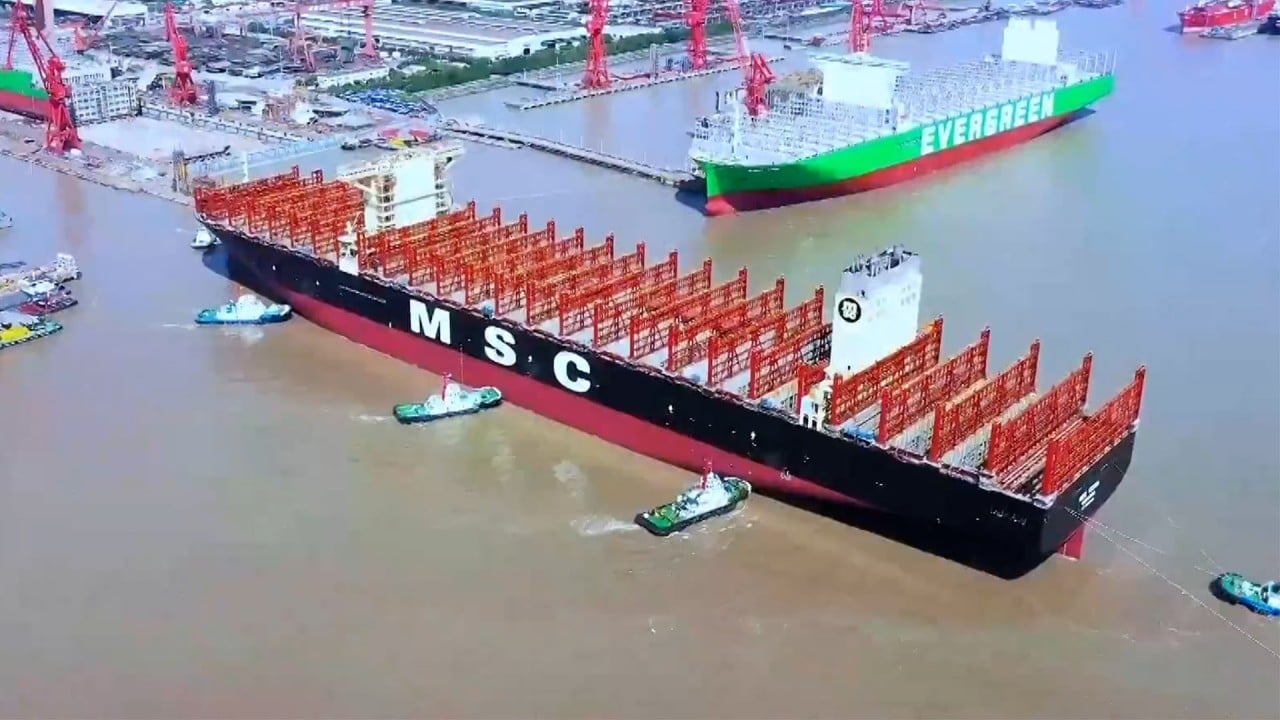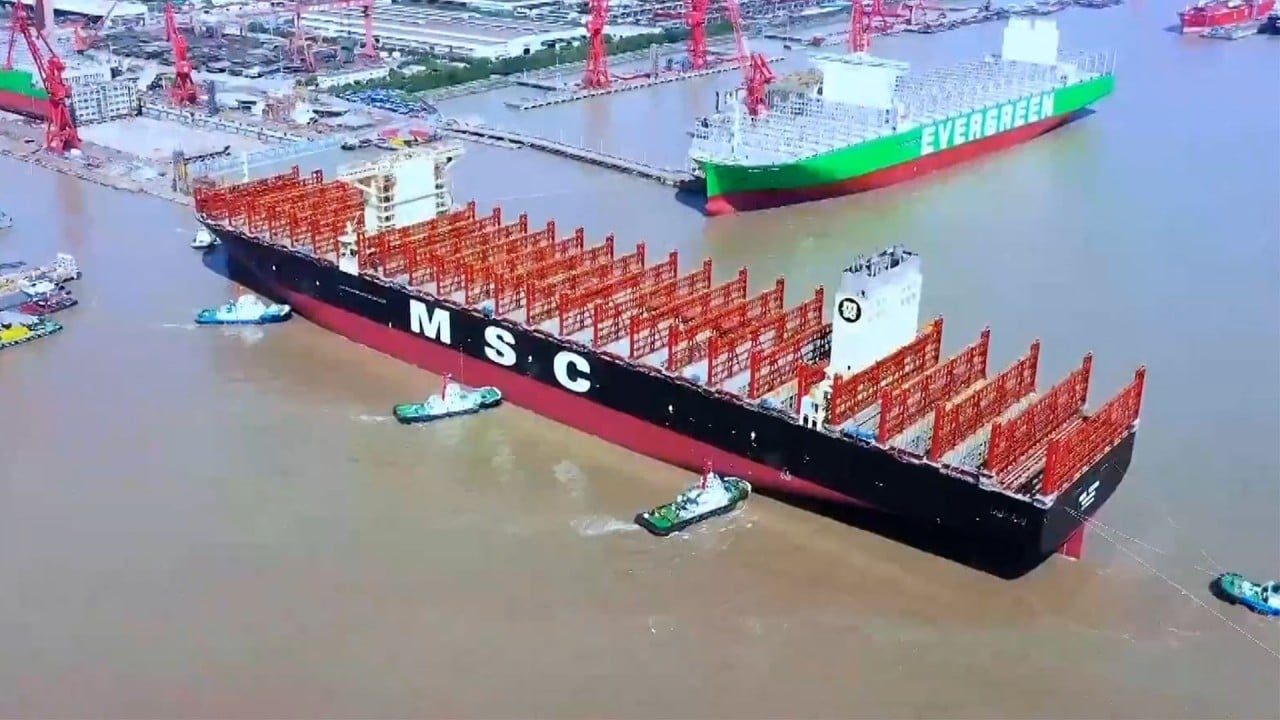Shipyards in South Korea netted a second win over their Chinese peers this year last month, a move believed to reflect Seoul’s devotion to defend a pillar industry amid increasing competition between the two nations.
South Korean shipwrights took 40 per cent of global intake for ship orders last month, which totalled 2.37 million compensated gross tonnage, BusinessKorea reported on Monday, citing British analytics firm Clarksons Research.
China dropped to second with a 24 per cent of orders, with South Korea firms having also surpassed their Chinese counterparts in February.
Chinese firms, though, received 30 orders, compared to 18 for South Korean manufacturers.
China also consolidated its lead with new orders of 25.54 million compensated gross tonnage in the first seven months of the year, representing a market share of 63 per cent, compared to South Korea’s 8.11 million compensated gross tonnage, or 23 per cent.
Clarksons did not reply to a request for information on Tuesday, but it said previously that China overtook South Korea in 2021 as the world’s top receiver of global shipbuilding orders in terms of annual volume.
But analysts said South Korea’s move in July could reflect shifts in the way China and South Korea view shipbuilding.
China is channelling subsidies into new industries, said Alicia Garcia-Herrero, chief economist for the Asia-Pacific region at French investment bank Natixis, with hi-tech hardware and electric vehicles government priorities for economic development.
Beijing hatched its third state-backed fund, worth 344 billion yuan (US$48.2 billion), this year to support the domestic semiconductor industry.
South Korea has also added funds for its shipbuilding sector after Seoul announced plans in 2022 for US$2 billion in projects intended to support its shipping industry as global freight rates fell.
For China, South Korea is a tipping point in terms of tech cooperation with the US
It also offered more funding, including a US$19 billion package of incentives earlier this year, to foster its flagship semiconductor industry.
“South Korea’s shipbuilders are known for quality and price competitiveness, backed by a national political economy determined to reduce over-reliance on semiconductor exports,” said Leif-Eric Easley, a professor of international studies at Ewha Womans University in Seoul.
South Korean companies, defending a historic reputation for high-value ships, have stepped up their quest for new global orders as Chinese peers begin building several liquefied natural gas vessels and their country’s largest-ever cruise liner.
China would still compete with South Korea for ship orders as a way to vie with West-leaning allies, such as Seoul, on technological advances and control over supply chains, added Garcia.
“They care for a very important reason,” she said. “For China, South Korea is a tipping point in terms of tech cooperation with the US.”
They do care, but in terms of the pecking order, it’s not as important as building a new port, say in Africa
Beijing pumped hundreds of billions of US dollars into shipping and shipbuilding in the 2000s, the US-based Centre for Strategic and International Studies think tank said in May.
The China State Shipbuilding Corporation of Shanghai ranks as the world’s biggest shipbuilder.
Chinese officials are, though, intent on beating the US in hi-tech hardware and renewable energy, said James Chin, a professor of Asian studies at the University of Tasmania in Australia.
Shipping probably matters more than shipbuilding among officials in Beijing, Chin added.
“They do care, but in terms of the pecking order, it’s not as important as building a new port, say in Africa,” he said.
But South Korea’s surge in shipbuilding market share in July might reflect just “a couple of big orders”, or a seasonal adjustment, rather than long-term dominance over Chinese shipbuilders, added Chin.



